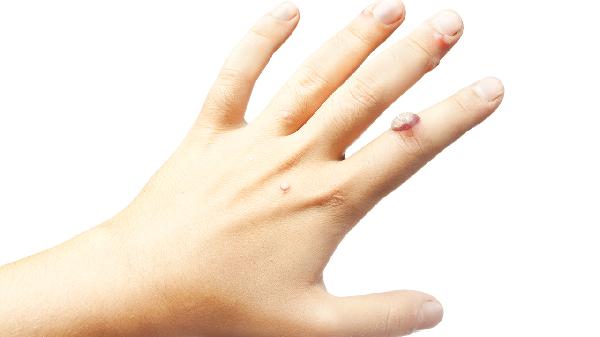Did your parents pass down their kinks to you? The short answer is: probably not in the way you're imagining. While genetics can influence personality traits and even certain behaviors, sexual preferences and kinks aren't typically inherited like eye color or height. Instead, they're shaped by a mix of personal experiences, cultural influences, and psychological factors. So, no, your mom's love for handcuffs didn't magically teleport into your DNA—but let's unpack this fascinating topic anyway.
The Nature vs. Nurture Debate in Kink
When it comes to human sexuality, the age-old question of nature versus nurture gets extra spicy. Some researchers argue that certain personality traits linked to kink—like openness to experience or sensation-seeking—might have genetic roots. Others point to environmental factors, like early exposure to certain ideas or even accidental discoveries during formative years. For example, if you grew up in a household where discussions about sexuality were open and non-judgmental, you might've felt more comfortable exploring your desires later in life. On the flip side, repressed or taboo environments could also shape kinks by making forbidden fruit all the more tempting. The truth? It's likely a cocktail of both.
Freud Was Wrong (Mostly), But Here's What Actually Matters
Sorry to burst your Oedipal complex bubble, but Freud's theories about psychosexual development being the sole architect of kinks haven't held up under modern scrutiny. What does matter is how your brain wires pleasure and arousal over time. Neuroplasticity—the brain's ability to reorganize itself—means that repeated exposure to certain stimuli can create new pathways that associate those stimuli with pleasure. This explains why some kinks develop gradually through experimentation rather than appearing fully formed like some kind of X-rated destiny. It's less about inheriting your dad's spanking preferences and more about how your own experiences shape what turns you on.
The Role of Culture and Media in Shaping Desire
or at least introducing—certain sexual preferences. This is where things get tricky in the "inheritance" conversation. If your parents were into BDSM and left their flogger collection in plain sight, that visual might've planted early seeds of curiosity. But that's not genetic transmission—it's environmental exposure working its magic. Similarly, growing up in a sex-positive community versus a conservative one can dramatically alter how and when certain kinks emerge.
Can Trauma Influence Kink? The Complicated Truth
Here's where things get sensitive. Some people develop kinks that seem connected to past traumas—not because they "enjoy" the trauma, but because the brain sometimes tries to rewrite painful experiences through controlled reenactment. This is why you'll occasionally hear someone say their CNC (consensual non-consent) kink feels empowering after surviving assault. It's crucial to note that this isn't universal, and many kinks develop completely independently of trauma. But when there is a connection, it's less about inheriting parental trauma responses and more about individual coping mechanisms. Therapy can be incredibly helpful for unpacking these connections in a healthy way.
The Science of Sexual Imprinting (And Why It's Not Like Birds)
In animal behavior, imprinting refers to how some species form lasting associations during critical developmental periods—like ducklings assuming the first moving object they see is their mother. Humans don't quite work that way, but early experiences can create lasting impressions on our sexuality. This might explain why some people develop kinks related to textures, scenarios, or even smells that remind them of positive early sexual experiences. Again, though, this is about personal history rather than genetic inheritance. Your thing for leather might trace back to that one thrilling movie scene you saw at 14, not your grandfather's secret biker gang past.
Breaking the Taboo: Talking Openly About Family and Kink
Here's the awkward truth nobody wants to discuss: at some point, most adults realize their parents have/had sex lives, possibly including kinks of their own. The difference is that healthy families maintain boundaries around this knowledge. While you might accidentally discover your dad's collection of vintage Playboys during spring cleaning, detailed information about parental kinks should remain respectfully unknown. This boundary is crucial for individual sexual development—your kinks should be yours to explore without feeling like you're living out someone else's script. If the idea of inherited kinks makes you uncomfortable, remember: you're not a carbon copy of your parents' sexuality, just like you're not destined to inherit their taste in music or politics.
When Kinks Feel "Inherited": The Power of Suggestion
Ever heard of the "false memory" phenomenon? Sometimes, when we learn something new about our family history, our brains retroactively create connections that weren't actually there. For example, if you discover your mom was into roleplay, you might suddenly "remember" childhood clues that seem to predict your own roleplay kink—even if those memories are reconstructed. This is why anecdotal evidence about inherited kinks can be misleading. The human brain loves patterns so much it'll invent them where none exist. Unless you have concrete evidence (which would be wildly inappropriate to possess), assume your kinks are your own unique creation.
Celebrating Your Unique Sexual Blueprint
At the end of the day, your kinks are as personal as your fingerprint—a combination of nature, nurture, chance, and choice. Instead of worrying about where they came from, focus on cultivating a healthy relationship with them. That means practicing consent, communicating openly with partners, and checking in with yourself regularly. Whether your preferences are vanilla or include the entire sundae bar with extra toppings, they're valid as long as they're consensual and bring you joy. So no, your parents didn't pass down their kinks to you—but they did pass down the incredible gift of your unique sexuality. Now go enjoy it responsibly.
























